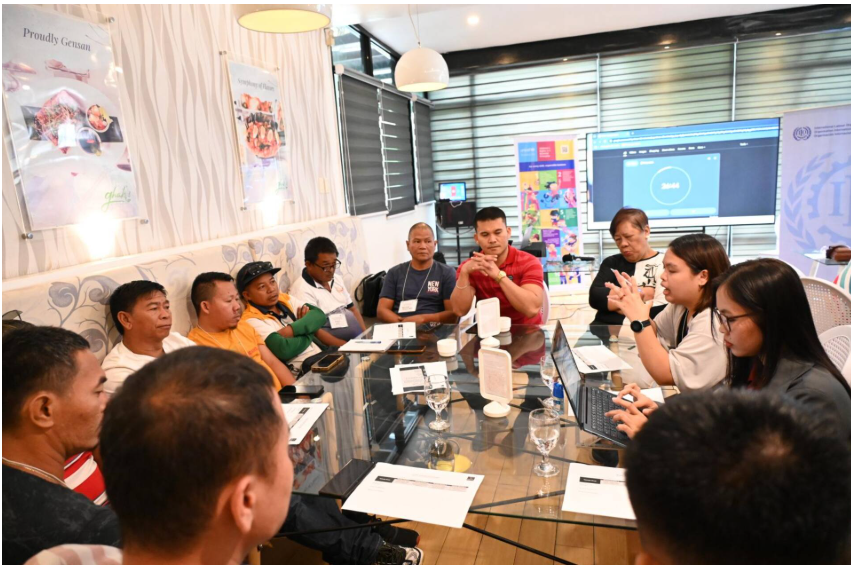Manila —The United Nations in the Philippines, through a Joint Programme with funding support from the Joint SDG Fund and implemented by the International Labour Organization (ILO), United Nations Development Programme (UNDP), and United Nations Children’s Fund (UNICEF), recently conducted a series of regional consultations across the country to support the development of the Global Accelerator (GA) Roadmap on Decent Jobs and Social Protection for Just Transitions.
Held from June 10 to 24 in Clark, Cebu, and General Santos City, stakeholders from the government, workers, and employers, including representatives from the construction, transportation, and informal sectors, convened to address issues and challenges on decent work, climate change, and just transition.
Key discussions underscored the urgent need for decent jobs and social protection, including reforms to address labour market challenges. Participants were able to share innovative solutions, best practices, and actionable recommendations to address these challenges and promote decent work and inclusive transitions.
Cooperative Development Authority (CDA) Region III Director Marietta Hwang and Social Security System Region III Vice President Vilma Agapito emphasized the importance of inclusive insurance mechanisms for informal workers and employees as a cornerstone for sustainable social protection and decent employment.
"Many of us don't have formal contracts and are not part of any unions. The programs on decent work and social protection will hopefully protect us so that we can have sustained livelihoods and incomes for our children and families," a participant representing informal workers from the construction sector in Region III said.
At the General Santos City leg of the consultations, Department of Labor and Employment (DOLE) Region XII Director Joel M. Gonzales underscored the need to embed inclusive social protection and decent work into the GA Roadmap’s pillars.
"Employment facilitation and human resource development,) workers’ protection, social protection and transition support, as well as formalization and sectoral transformation are some of the key areas that the GA roadmap must cover,” Gonzales said.
"The transport cooperatives, drivers and workers shall be supported more comprehensively through sustainable social protection mechanisms especially during the modernization plans that might impact small players like us," according to a transport cooperative leader who participated in the Region XII consultation.
The emphasis on social protection also aligns with the broader push for implementing family-friendly policies within these sectors to support families, women and children.

Jennifer C Bretaña, Regional Director for Department of Economy, Planning, and Development (DepDev) VII, emphasized that decent work should be backed by inclusive policies. “These jobs should have social protection for it to be ‘matatag’ (resilient)”, she added.
Critical challenges in the transport and construction sectors identified from these dialogues will serve as vital contributions to the development of the GA Roadmap in the Philippines (and in the Trabaho Para sa Bayan Plan). These results will be integrated into a national validation workshop for the roadmap later this month.
The UN Joint Programme on Supporting Decent Job Creation and Enhancing Social Protection for Just Transition in the Philippines (supported by the Joint SDG Fund) aims to provide technical and financial assistance to the GA roadmap in the country. As a GA pathfinder country since March 2024, the programme also aligns with the Trabaho Para sa Bayan Act - the larger master plan for employment generation and recovery in the Philippines.